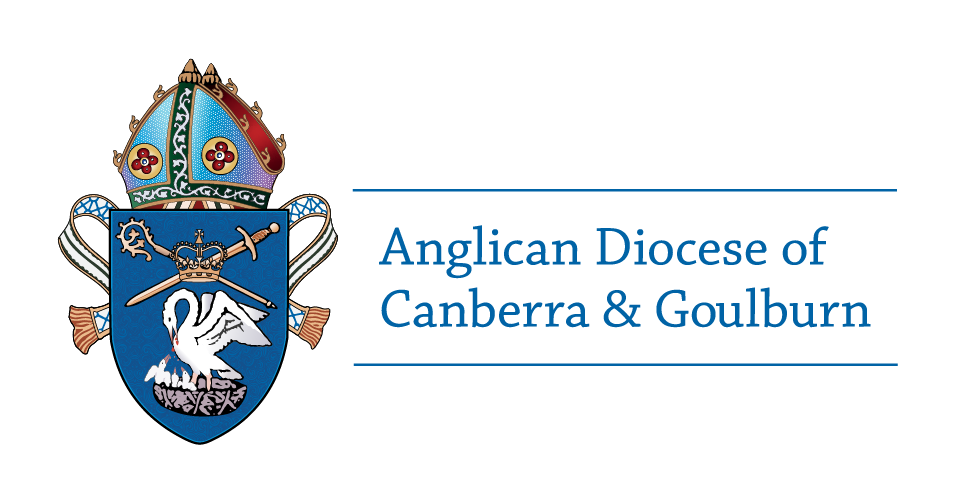On Australia Day, along with my wife, Ruth, and our incoming diocesan bishop, Mark, and his wife, Monica, I partook of the hospitality of the Prime Minister at the Lodge. The day was extremely hot and the dress code was officially relaxed so we did not have to wear clerical collars – an open necked shirt with a pectoral cross was enough of a ‘uniform’ for me! Nevertheless, we made a beeline for a cold air blower in the marquee where we met others trying to keep cool: diplomats from Uruguay and from Uganda (the latter happened to have borne quadruplets – an interesting fact for your next trivia competition!). We then made it out onto green grass under a tree and looked longingly at the swimming pool. However, no-one defied protocol to jump in!
There were various dignitaries at the function, all representing their country or a significant organisation or agency. It made me think about which group we belong to and whom we represent. This especially struck me when the Honourable Scott Morrison quoted from the Preamble to the Australian Constitution: ‘the people … relying on the blessing of Almighty God, have agreed to unite…’. Mr Morrison’s remarks emphasised the unity which he believes marks the Australian nation. He commented on how people from all types of backgrounds (and that was certainly evident at this event) can be joined in a united commitment to our country.
Given the occasion, it was only right that the Prime Minister stressed the positive. And we congratulate those from our Diocese who received Australia Day honours for their contribution to Australian society. Yet, as we know, not all people in Australia do respect each other or treat each other well. Ultimately the reason for that is a predisposition which Christians have traditionally called sin.
Sin is not much talked about these days, and the actual word has become coated in so many superficial and misleading meanings that I do not advise you to use it with anyone not thoroughly steeped in the Christian faith. The early humans chose to make their own decisions on the basis of what would give them power, disdaining the guidelines that the Creator had set in place for His world. Self-centredness, the quest for dominance and assertive independence from God have continued to mark human life ever since. Humanity is alienated from God, experiencing dissatisfaction with lives that ignore His blueprint. In the ageless word of St Augustine, You have made us for yourself, O Lord, and our hearts are restless until they rest in you.
Unfortunately, even when we have identified with Christ, this predisposition to self-centredness and personal arrogance continues to plague us. As St Paul wrote in Romans 7:21: Although I want to do good, evil is right there with me. Spectacular failures we have witnessed among Christians serve to reinforce this truth. Christians are much more likely to fail when they are ambivalent about which community they really belong in.
That is why the New Testament in many and various ways reiterates the idea that we must deliberately practise Christian thinking and behaviour in the power of the Holy Spirit: Put to death what belongs to your earthly nature … You used to walk in these ways … But now … as God’s chosen people, clothe yourselves with compassion, kindness, humility, gentleness and patience. Bear with one another and forgive … as the Lord forgave you … And whatever you do, do it all in the name of the Lord Jesus … (Colossians 3:5–17).
To draw on a recent Australian debate, perhaps the point is that we may be dual citizens of Australia and God’s kingdom but we must commit to the latter. Despite all we have gained through being citizens of Australia, that background needs to take second place to our present citizenship in God’s polity. As the apostle Peter declared, you are a chosen people, a royal priesthood, a holy nation, God’s special possession, that you may declare the praises of him who called you out of darkness into his wonderful light. Once you were not a people, but now you are the people of God (1 Peter 2: 9, 10). Jesus himself also said, you do not belong to the world, but I have chosen you out of the world. (John 15:19).
While I expected the various ambassadors we met on Australia Day to respect their host country of Australia, it would have been odd if they disparaged the outward costumes and inner values of their own countries. In the end, they were there at the function because they were representatives of somewhere else. It’s the same with Christians. We respect and serve the society in which we are placed, but in the end, like ambassadors, we are placed in Australian society to represent the Lord Jesus. Those around us will only view us as authentic people of God if Christlike attitudes and behaviour mark us.
I encourage you to think about those pressure points in your own life where it is only too easy to conform and to fall back into the ‘ways you used to walk’, and to forget that now your allegiance is first to Jesus as Lord. The Prime Minister’s aspiration for a united country is a worthy one. Even more important is that those who are God’s own people are united in ‘declaring the praises of him who called us to be children of the light’. As dual citizens we must always face this choice.
+Trevor Edwards

